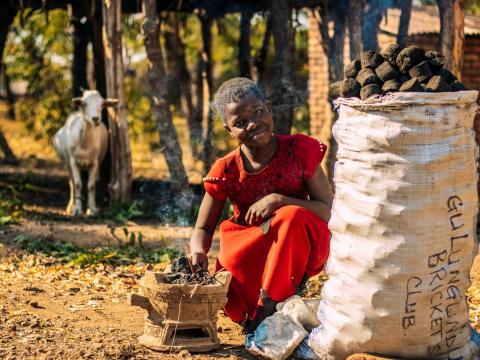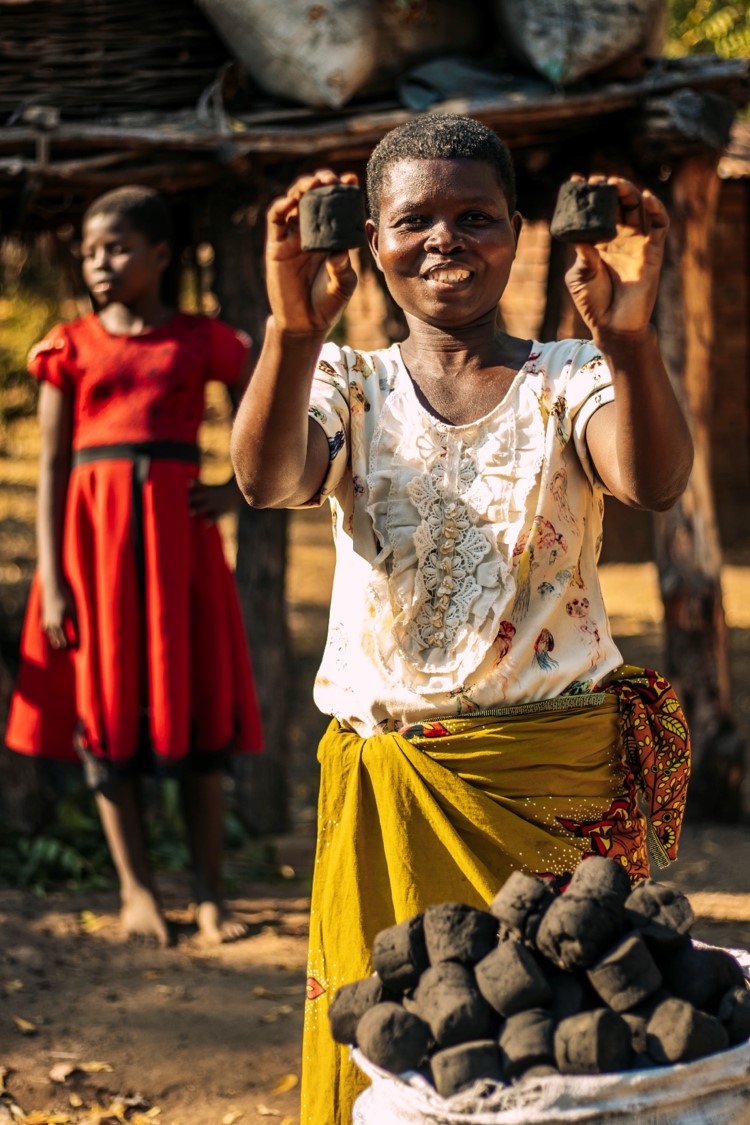Mother Turns To Sustainable Briquettes To Save Family And Forest

Elizabeth, from Nsanje District, Malawi, remembers a terrifying moment in 2018 when she almost lost her life to a snake bite in a nearby Nzungu Hill Forest where she went to burn charcoal.
“It was very painful. It took me days to heal. I suffered a lot. We were used to that life of cutting down trees for survival, either for charcoal or firewood,” says Zhuwaki.
Zhuwaki, 40, and a single mother of three, has always depended on the natural resources from Nzungu Hill Forest to support her family . It was not until World Vision arrived in her area in 2023 that she and the entire Chayelera community learned about the dangers of deforestation to the environment.
Nyachipele Area Programme where Zhuwaki’s Chayelera Village is located, is one of the disaster-prone areas in Nsanje District. The agriculture production in the area is almost annually affected by climate shocks including floods, cyclones, dry spells, strong winds, high prevalence of pests and diseases resulting into perennial food insecurity at household level.
Faced with such harsh climatic conditions, many community members, like Zhuwaki, were compelled to depend on forest resources for survival. To address the situation, World Vision through Nyachipele Livelihood and Resilience Project, trained Zhuwaki and others in Village Natural Resource Management Committees on how to sustainably manage their natural resources using the Farmer Managed Natural Regeneration (FMNR) approach.
“When World Vision came with such good news in October 2024, I made a decision that very day to implement what I had learned. We were trained on managing regenerated forests and adopting sustainable environmental conservation and management technologies, such as energy-saving technologies including briquettes and smokeless stove production,” says Zhuwaki.
Through the Farmer Managed Natural Regeneration approach training, Zhuwaki and her fellow community members have abandoned their previous ways of earning a living and have embraced briquette production as a more sustainable and profitable livelihood.

“When I started making briquettes, my first production yielded 15 bags. When I sold the briquettes, I earned MK 90,000, which I used to support my three children. With that money, I bought a goat, maize for the household, and I invested the remaining amount in honey production, which has since multiplied,” says Zhuwaki.
Zhuwaki says she is currently training her fellow community members on briquette production as a practical and economical alternative that not only improves household income but also helps reduce deforestation caused by charcoal burning and excessive firewood dependence.
Farmer Managed Natural Regeneration approach is a low-cost, simple, sustainable land regeneration practice that communities can use to restore their land, increase their productivity and build resilience relatively quickly and efficiently. The approach also promotes sustainable attainment of economic independence to all vulnerable households while not compromising the environmental management.
Since its launch in 2023, Nyachipele Livelihood and Resilience Project has trained 617 people in briquette production as part of its goal to strengthen economic independence and climate resilience. So far, the project has helped restore a total of 104 hectares of regenerated forest.